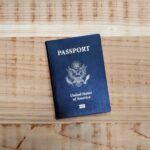Welcome to FindBiometrics’ digest of identity industry news. Here’s what you need to know about the world of digital identity and biometrics today:
Prosecutor Confirmation Puts Clearview’s BIPA Case Back on Track
A class action lawsuit against Clearview AI appears to be back on track, with the US District Court for the Northern District of Illinois confirming that the law firm Loevy & Loevy represents the plaintiffs. Brought forward via claims that Clearview had violated Illinois’s Biometric Information Privacy Act (BIPA), the case had been disrupted when lawyer Scott Drury quit the firm Loevy & Loevy and sought to represent its clients under his own firm, Drury Legal. That hasn’t worked out, nor did things go well for Drury Legal in separate BIPA cases against Amazon and Microsoft, which were dismissed by a federal judge for the US District Court for the Western District of Washington.
NZ Supermarket Chain, Osaka Metro Trial Facial Recognition
Foodstuffs North Island, a New Zealand supermarket chain, is piloting the use of facial recognition technology under the close scrutiny of the country’s privacy watchdog. Foodstuffs says it is testing the technology as a security measure at select locations after having seen a 31 percent increase in rates of criminal and threatening behaviors at its stores. Liz MacPherson, the deputy privacy commissioner, told Stuff that her office had warned Foodstuffs to careful consider whether using the technology was a necessary and proportionate response, but acknowledged that her office is “pleased to see Foodstuffs is undertaking a controlled trial before making the decision to use the technology on a broader and ongoing basis.”
Administrators with the Osaka Metro transit system are preparing to test a facial recognition system designed to make it easier for travelers in wheelchairs to pass through a ticket gate. The face scanners will be deployed at the appropriate height for wheelchair users, and will enable them to pass through the gate without letting go of their wheelchairs. The trial will begin on December 1 at Nagai station, and will run until February 17, with the transit operator aiming to have facial recognition systems in place at all stations by the end of 2024.
Nanoleq Crowdfunds Breath-tracking Wearable
Nanoleq, a startup that has spun off from ETH Zurich, is crowdfunding on Kickstarter to fund the development of a breath-tracking wearable device called Oxa. Designed to clip onto a specialized shirt or bra, Oxa’s sensors are designed to track respiratory rate and depth, as well as heart rate and skin temperature. Having raised $16.5 million in investor funding to date, according to data from Crunchbase, the startup is now looking to crowdsource just €50,000 through its Kickstarter campaign.
FPC, Infineon Team Up on Turnkey Payment Card Solution
Fingerprint Cards and Infineon have announced a new partnership agreement that will see the companies collaborate on a biometric payment card solution, with the aim of making production of such cards “as simple and easy as producing a standard dual interface payment card,” they explained in a statement. Their joint solution, dubbed “SECORA Pay Bio”, will feature Fingerprints’ FPC1323 sensor and Infineon’s forthcoming SLC39B Secure Element, and will include a Java Card operating system with Mastercard and Visa bio-applets. The news comes after the companies’ earlier collaboration to enable biometric authentication on Infineon’s SLC38 Secure Element last year.
Belgium to Launch Mobile ID App Next Year
Belgium’s Secretary of State for Digitalisation, Mathieu Michel, has announced plans to launch a mobile ID app next year. Currently being tested by government authorities, the app is designed to comprise a virtual ID card and other government-issued certificates, including driver’s licenses; and it will be compatible with the eIDAS, NIS2, and Single Digital Gateway Standards. The app will be something of a rival to the Itsme digital identity tool already in use in the country; but in addressing the questions of Members of European Parliament, Secretary Michel insisted that the latter would not be replaced, noting that as long as a company respects government standards, it can have the same access to digital identity data.
A Tool to Track Slippery Seals
Researchers at Colgate University have developed a facial recognition system for seals, built using a database of images of harbor seals from Casco Bay in Maine. The aim, as is so often the case in adapting facial recognition for use on non-human animals, is to help scientists better track wild populations, and ultimately aid conservation efforts. The researchers trained the system on over 1,700 images of more than 400 seals, and say its accuracy rate is close to 100 percent.
–
November 24, 2022 – by Alex Perala









Follow Us